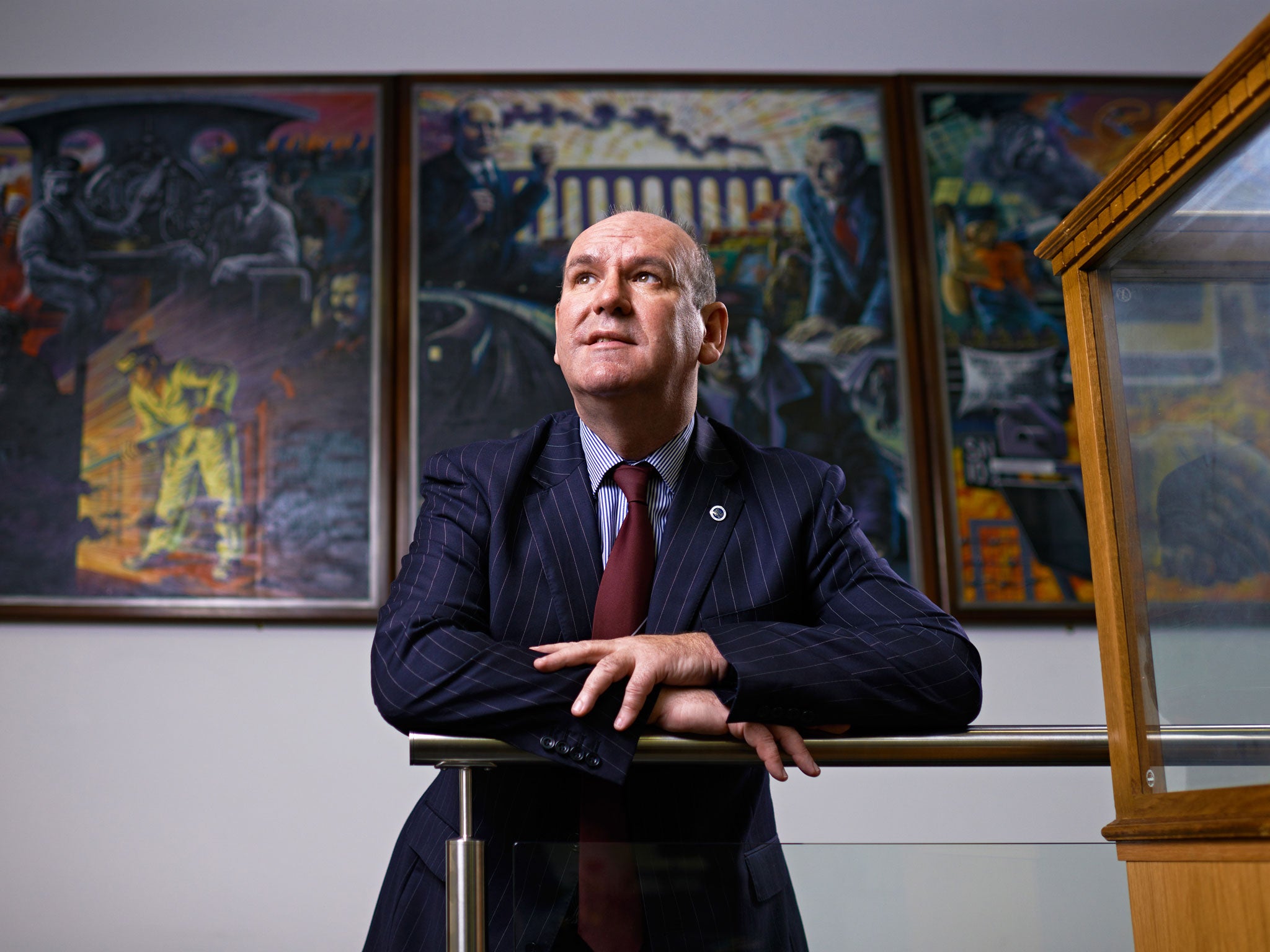'We need HS2': Aslef boss Mick Whelan defies Labour by backing high-speed rail link

Ed Miliband and Ed Balls have been challenged by one of Labour’s most loyal union leaders to stop treating the proposed HS2 rail scheme as a “political football” and to give Labour’s unambiguous backing to the £42bn project.
Mick Whelan, the general secretary of Aslef, said he was dismayed at the conflicting signals from the Labour leadership over the need for a new high-speed link between London, the Midlands and the north of England.
He said he feared a Miliband-led administration would repeat Labour’s mistakes in the 1970s, when it cancelled construction of the Channel Tunnel and Maplin airport in Essex by failing to press ahead with major building schemes.
In an interview with The Independent, he also put himself at odds with Mr Miliband by calling for the renationalisation of the rail network to raise standards of service and end profiteering by private firms.
His comments come as commuters face an average increase of more than 3 per cent in season ticket prices. They will concern Labour as Aslef, which represents train drivers, is regarded as among the unions most faithful to the party.
Labour’s previous support for HS2 was thrown in doubt last September when Mr Balls, the shadow Chancellor, promised that an incoming Labour government would review the scheme, insisting he would not give it a “blank cheque”.
But Mr Whelan said: “We need HS2. We need it for the right reasons, the economic and business reasons and the socio-economic reasons that are going to drive growth for the next 20 or 30 years.”
He said he supported Prime Minister David Cameron, who is facing strong opposition from many Tory MPs in the Home Counties, over the importance of HS2 and believed the Opposition should lend its full support.
Mr Whelan pointed out that Labour drew up the original HS2 proposals and that conference delegates last year gave a standing ovation to a call to press ahead with the scheme.
Asked about Labour’s current attitude to the project, he replied: “I’m worried about it because I don’t want to see it become a political football. We either need the infrastructure or we don’t.”
He added: “We believe ‘I won’t be here’ when most of these projects come to fruition, but we should be looking to our grandchildren, our great grandchildren, we should be leaving them a legacy.”
Mr Whelan, a former train driver who has headed the union since October 2011, accused the Coalition of “pure dogma” over moves to re-let several rail franchises and to return the troubled East Coast mainline to the private sector.
But he risked a clash with Labour leadership by advocating taking the entire system back into public hands.
“We would like to see [the rail companies] come back under public control, it’s that simple. If we are putting this massive amount of investment in, then the returns should come back to the Treasury, whether it’s for re-investment in transport, social housing, hospitals or whatever.”
Join our commenting forum
Join thought-provoking conversations, follow other Independent readers and see their replies
Comments
Bookmark popover
Removed from bookmarks